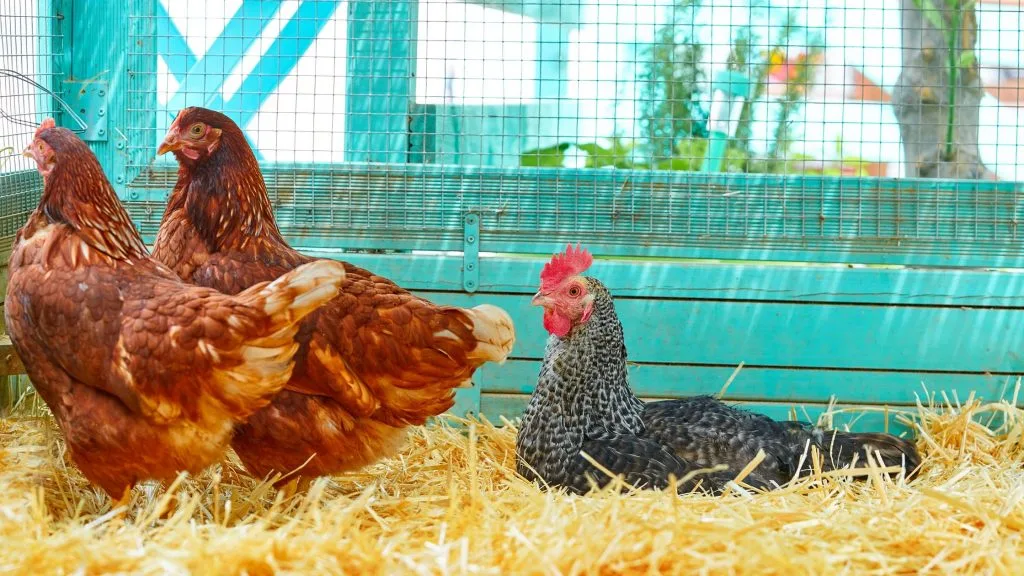Portable chicken coops boast many advantages for new or aspiring chicken farmers. The advantages include free fertilizer, pest control, and, best of all, fresh eggs.
Don’t be fooled into thinking you need a large farm or several acres to devote to your chickens. Many designs can fit easily into your backyard, even if you live in a large city.

Portable chicken coops may also be called chicken tractors. Some chicken tractor designs even attach to wheels for easy relocation when your chickens need a fresh patch of grass.
Chicken tractors are often built in an A shape, and some don’t have a bottom.
Before you even consider setting up portable chicken coops in your backyard, you will want to check your city ordinances. Some cities prohibit raising livestock while others don’t.
Check out Free Chicken Coop Instructions here.
You’ll want to ensure you aren’t breaking any laws by keeping hens on your property.
We raised our first batch of hens in the town that had a Walmart across the street and BJ’s Wholesale club two houses down. ( Yep, it’s kind of how I started with the BJs deals blog here)
We made our own chicken coop, but I started to feel bad about the girls not being really free-range. So I started letting them out for an hour at night.
One hour turned into two, and so on, and before you know it, my chickens wanted to go to Walmart. We could have gotten in trouble with our town, and instead, we realized we needed to move out to the country.
Even if no city ordinances prevent you from raising livestock, you will still want to keep your chicken coop looking and smelling nice so you don’t irk your neighbors.
Another consideration before setting up your portable chicken coop is what will happen to your hens after their egg-laying years. Hens stop producing eggs around six or seven, yet they can live around fifteen years.
This is a critical consideration if you will be housing only a few chickens in your backyard and keeping them for egg production.

If you have or plan on building a portable chicken coop, you’ll need to provide your chickens with some protection from the elements. In addition, this shelter should have been a source of warmth during colder seasons.
Insulate your chicken coop or use a heat lamp to keep your hens warm. Some chicken farmers even report moving their portable chicken coops into garages or sheds to temporarily protect hens from the elements or prevent predators from easily accessing them.
Also, keep in mind is that you will most likely need a straw, pine needles, or some padding to put in the bottom of your nest boxes. The eggs are less likely to crack if you have some padding underneath the hens.
Before setting up your portable chicken coop, you need to think about how you will protect it from rats and mice. Having barn cats is a huge benefit for us in the country, but not possible in cities.
You can’t always protect your portable chicken coops, but you can take precautions such as covering holes and gaps with sheet metal, feeding your chickens in the early morning and late afternoon, and only feeding chickens what they will eat.
As you can see, before setting up portable chicken coops in your backyard, there are some special considerations you need to make, so you don’t end up an unhappy chicken farmer.
More FREE Chicken Tips:
